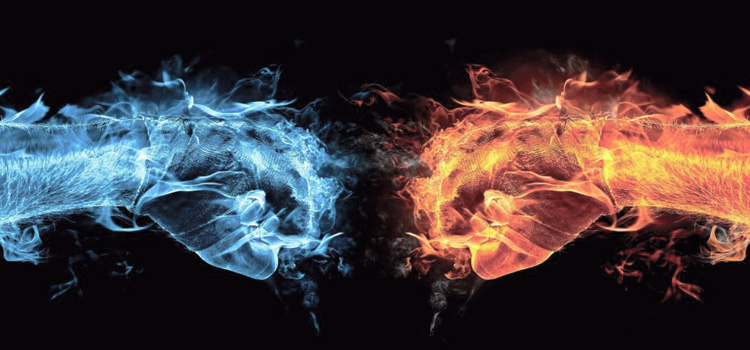 Taste is subjective. A person’s taste preference can be tremendously influenced by culture, upbringing, and personal health concerns. This generally means it is rare to find two individuals with the same exact tastes in food and drink.
Taste is subjective. A person’s taste preference can be tremendously influenced by culture, upbringing, and personal health concerns. This generally means it is rare to find two individuals with the same exact tastes in food and drink.
However, there is something that a lot of people would agree on, regardless of what kind of foods they were exposed to when they were growing up: cold water tastes infinitely “better” than hot water. There’s just no denying it. Though they are fundamentally the same, hot water isn’t just that palatable to many. There’s something off about it, whereas cold water is always refreshing.
How could the same substance tastes so different when served under different temperatures? There are food and drink that taste better when served hot (e.g. coffee, tea, bread, and cooked meat), so why is water not one of them?
Though the exact cause is unknown, research suggests that temperature does affect a few factors that could influence why a lot of people why would prefer cold water over hot.
Physical Properties of Hot Water Versus Cold Water
Fundamentally, nothing changes in the chemical composition of water when you heat it. However, in the act of boiling, you can dissolve the minerals and minute impurities in the water which can be enough to alter its taste.
So, what would happen if you boil pure, clean water? In the absence of bacteria, excessive amounts of minerals, and flavorings would release gasses that are already dissolved in the water. The most significant gasses that are released through boiling is oxygen (which primarily comes from the air) as well chlorine and sulfur (common byproducts of water treatment plants). Since our sense of taste is connected to our sense of smell, the release of these gasses can affect the way we “taste” the water through our nose and tongue.
Another plausible theory: tap water contains a particularly significant amount of dissolved minerals (e.g. calcium, sodium, potassium, and others). This can be proved by the powdery whitish residue left behind when you let tap water evaporate. Now, as you boil your tap water, you are evaporating the H2O and leaving most of these minerals behind. The heated water now contains a concentrated amount of minerals, which could make it taste saltier, more metallic, or more mineral-y than the original water that you started with.
The Taste Buds’ Role
Beer, as a well-loved alcoholic beverage, is very bitter. However, no one likes to drink warm beer. This beverage is always served extremely cold, with some connoisseurs even preferring it to be served and drank in below zero temperatures. The colder, the better.
The reason for this is simple: cold temperatures slightly suppresses the taste buds. You can taste fewer flavors when the food or drink you’re ingesting is cold. If you’re still not convinced, try letting a glass of Coca-Cola warm up to room temperature. You’ll find that room temperature Coca-Cola is sweeter (it can get too sweet, in fact) and more acidic than cold Coke. There’s also the fact that carbonation holds extremely well in colder temperatures so that soda and any other carbonated beverage would always be more refreshing to drink than warm ones.
We have been conditioned to taste water as flavorless- drinking off-tasting water can mean that something toxic or poisonous is in it, so we, as humans, prefer our water to be as tasteless as possible. Thus, cold is the ideal temperature for it to be drunk.
Cultural Evolution
Cold water may have also been an “acquired” taste, something that we as a species have learned for many years. A lot of people associate warm water with stagnant, uncovered water (e.g. puddle water, or water in an open container that is left in the sun for too long), so they may subconsciously consider it as undrinkable. Flowing water (such as that from a river or spring) is usually cold, so, therefore, it is more palatable.
There’s also the fact that cold water is considered as an artifact of sanitary public water supplies in more developed countries. This might have lead people into thinking that cold water is cleaner than warm water, and have grown up thinking that this is always the case (which we know isn’t always true, since boiled heated water can be more sanitary than untreated H2O).
